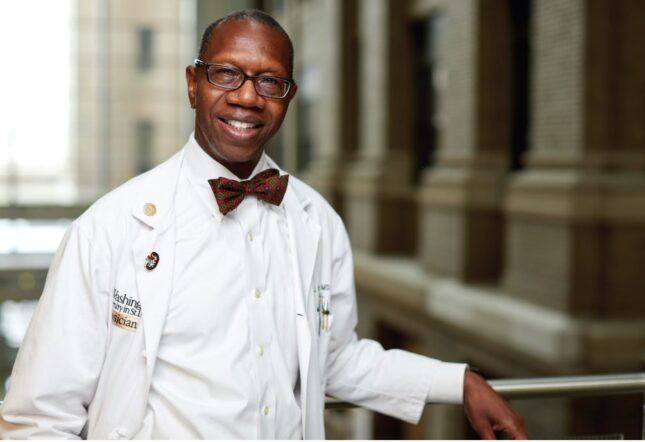
Diversity and inclusion are core values of the School; we state them clearly in our mission statement, committing to conduct all our endeavors “in a culture that supports diversity, inclusion, critical thinking and creativity” and to “cultivate excellence and collegiality within an inclusive community.”
For decades, a cornerstone of our diversity efforts has been to improve recruitment and retention of underrepresented minority faculty, residents, students and staff. We recognize that, in our missions of education, patient care and research, bringing together people from varied places, backgrounds and training is essential for success; diversity of thought and perspective provides richer solutions to the complex challenges of academic medicine. Today, the percentages of people of color among medical students is 20%, 15% among medical residents and fellows, and 6.5% within the faculty. We are equally pleased with the progress made in our Division of Biology and Biomedical Sciences, Physical Therapy, Occupational Therapy and Audiology. All of these numbers represent progress, but we continually strive to do better.
In addition, we actively seek to avoid racial isolation on our campus and to provide effective opportunities for culturally appropriate mentoring and networking.
Toward that end, within the MD program, the Office of Minority Affairs was created in 1972 to promote diversity within medical education and to provide support for students throughout their tenure at the School of Medicine. In 1996 the Office of Diversity Programs was formed with the goal of recruiting underrepresented minorities and economically disadvantaged students and providing opportunities for all our students to develop the skills needed to attend to an ethnically and racially diverse patient population. In addition, for many years, a diversity retreat has been part of orientation for all medical students, and more recently, diversity has become one of several key topics addressed longitudinally throughout all four years of the MD curriculum.
Beyond the MD program, the Human Resources’ Office of Diversity and Inclusion, established in fall 2013, has provided diversity and inclusion training to more than 7,500 people and spearheaded a school-wide survey that has provided valuable insight into attitudes and challenges on campus.
Although St. Louis has its share of racial segregation and social disparities, Washington University benefits from its proximity to the Central West End neighborhood and the city of Clayton — both bastions of progressive thought and inclusion of those from diverse backgrounds. The university also has a healthy track record of engagement, mutual respect and partnership with the broader St. Louis region. Our students, residents and faculty are deeply involved in community service and community-based participatory research. We “know” each other well.
The tragic death of teenager Michael Brown in August 2014 and the subsequent regional unrest was painful and challenging for the entire St. Louis region, including the Washington University community. Responding to widespread shock, anger and turmoil, university leaders encouraged institution-wide dialogue. At the Danforth Campus and the School of Medicine, the chancellor, provost, dean and administrative deans actively participated in numerous open forums and town hall sessions to discuss race and cultural awareness. Those meetings were well attended and structured to allow respectful, meaningful conversations. The work continues through ongoing forums and the work of several committees.
None of the factors above can fully inoculate us from an adverse event of racial or cultural intolerance that could stir campus unrest. But we do have a long, sincere tradition of acknowledging challenges and responding with empathy, open dialogue, and proactive leadership. All of that makes us strong.
We remain dedicated to ensuring that everyone feels welcome and celebrated as part of our campus community. Together, we all make a contribution to one of the best medical schools in the world.
Will Ross, MD, MPH
Associate Dean for Diversity
Professor of Medicine, Division of Nephrology
Learn more about diversity and inclusion at the School of Medicine »